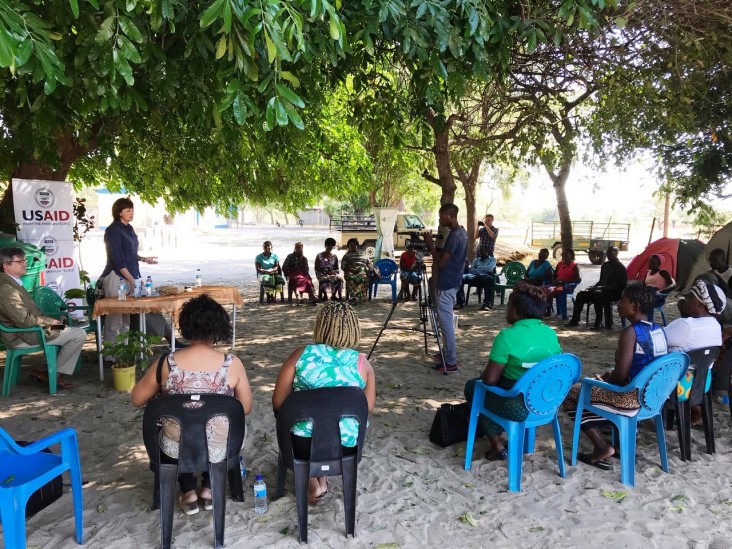Press Release Shim
Speeches Shim

For Immediate Release
Katima Mulilo – As primary providers of water, food and energy at the household and community levels, women are often highly dependent on natural resources, including wildlife, for their livelihoods. On November 14, 2018, U.S. Ambassador Lisa Johnson participated in a public speaking training workshop for women from four different conservancies in the Zambezi Region. The workshop was sponsored by the Combating Wildlife Crime in Namibia and the Kavango-Zambezi Area (KAZA) program, which is funded by the U.S. Government through the United States Agency for International Development (USAID). The workshop was hosted at the Sikunga Conservancy near Katima Mulilo, and facilitated by Janet Matota from Integrated Rural Development and Nature Conservation (IRDNC).
The workshop was designed to build essential public speaking skills and empower rural women to play a more prominent role in conservation, particularly in the fight against wildlife crime. Addressing the workshop participants, Ambassador Johnson emphasized the dangers it posed: “Wildlife crime is a critical threat to economic development. It undermines security and threatens legitimate economies. When we lose wildlife and security as a result of the illegal wildlife trade, we also lose the tools essential to fight extreme poverty.”
Ambassador Johnson also stressed the importance of local ownership of conservation efforts to their success: “Indigenous communities and local people – women, in particular – are important agents in wildlife conservation, sustainable use, improved livelihoods, and in the fight against wildlife crime.”
The Combating Wildlife Crime in Namibia and the KAZA Area program is a five-year, US$17.6 million initiative to counter threats from transnational wildlife crime to endangered populations of black rhino and elephant in Namibia and the KAZA Transfrontier Conservation Area.
Wildlife crime affects both animals and the people who rely on natural resources for their livelihoods. Poaching and related illicit activities not only undermine security and threaten legitimate economies, but also weaken efforts to end extreme poverty. The U.S Government supports sustainable practices that help communities such as Sikunga to better protect and benefit from wildlife resources.
The Sikunga Conservancy covers an area of 287 square kilometers, with a population of 2,473. The conservancy was first registered in July 2009 and is home to numerous animal species including elephant, hippo, and crocodile. The conservancy also has a variety of endangered bird and fish species, which are threatened by illegal fishing activities.
###
Related Press Releases
- Young Namibian Women Graduate as Ambassadors for U.S.-funded DREAMS Program
- U.S. Ambassador announces US$89 million for HIV prevention, care, and treatment in 2021 from the U.S. President’s Emergency Plan for AIDS Relief (PEPFAR)
- U.S. Food Assistance Enables 4,000 Namibian HIV Patients to Resume Treatment

Comment
Make a general inquiry or suggest an improvement.